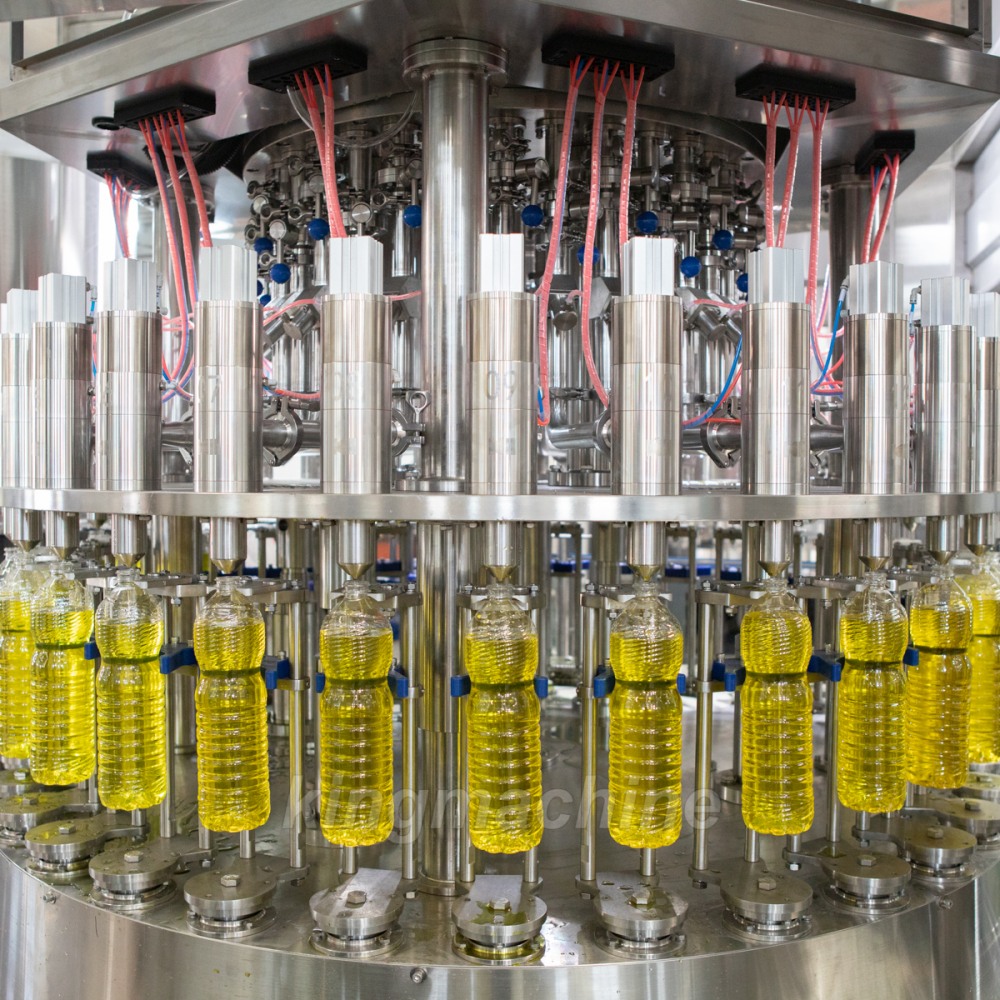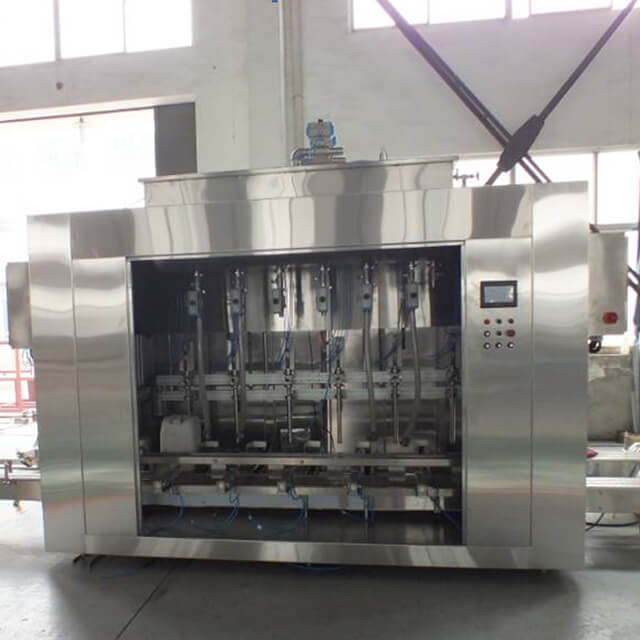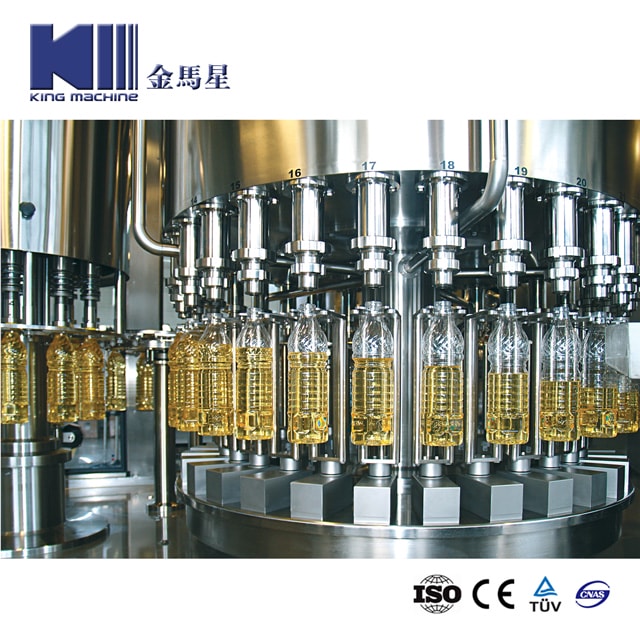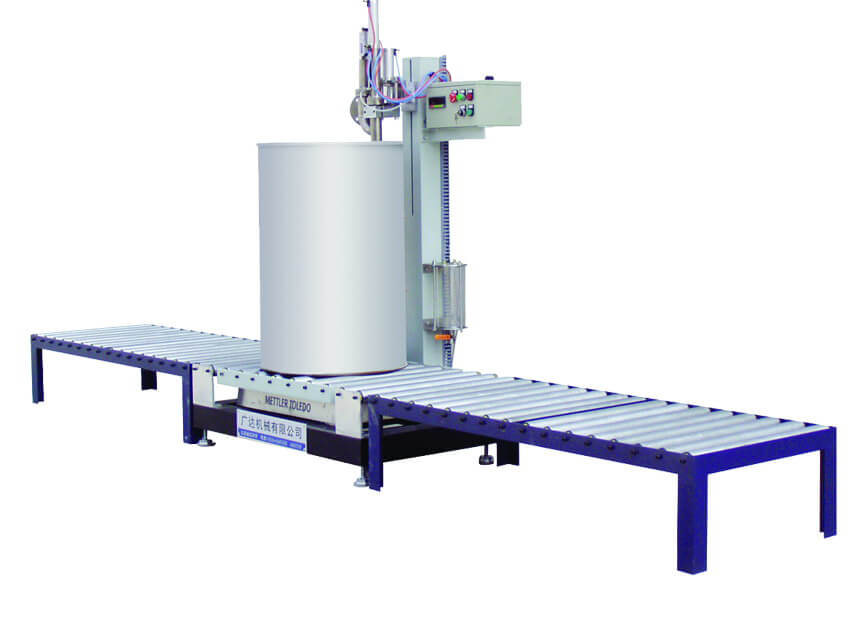In today’s competitive oil production industry — spanning edible oil, lubricating oil, essential oils, and other specialty oils — manufacturers face constant pressure to deliver products with consistent quality, precise volumes, and fast turnaround times. Even minor inconsistencies in filling can lead to increased costs, regulatory issues, or customer dissatisfaction.
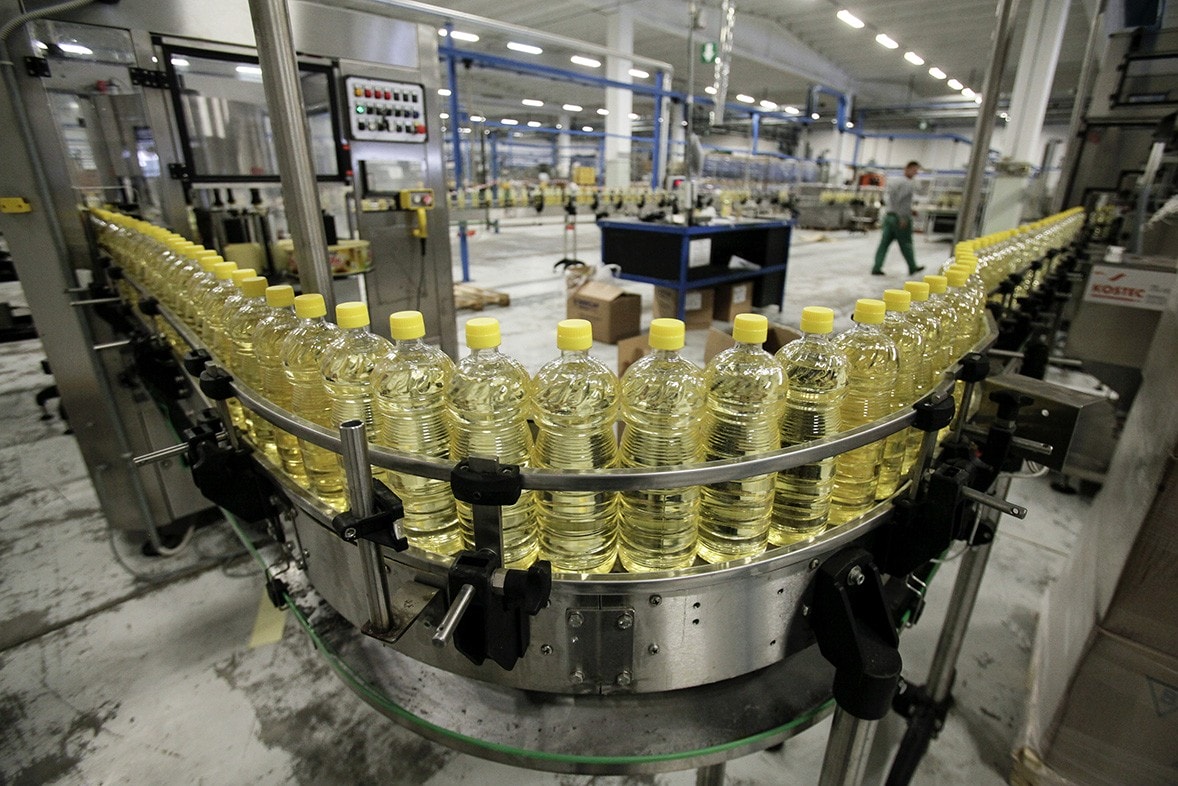
Traditionally, oil filling has relied on volumetric filling methods, which measure liquid by volume rather than weight. While these methods can be effective, they often struggle to maintain accuracy when handling oils of varying viscosities or temperatures. This can lead to product overfill, underfill, or increased waste.
Weighing filling machines have emerged as a modern, high-precision solution to these challenges. By using load cells, advanced sensors, and PLC-controlled automation, these machines provide precise weight-based filling that helps oil producers maximize efficiency, minimize waste, and ensure compliance with strict quality standards.
What is a Weighing Filling Machine?
A weighing filling machine is an automated system designed to fill containers based on precise weight measurements rather than volume. At the core of the machine are load cells and sensors that detect the weight of the container and its contents in real time. The system is typically controlled by a PLC (Programmable Logic Controller), which manages filling speed, cut-off points, and quality control checks.
Working principle:
An empty bottle or container is placed on the filling platform.
The machine measures its tare weight to ensure accuracy.
Oil is dispensed until the target weight is reached.
The filling process stops instantly when the set weight is achieved, avoiding overfill.
Applications in the oil industry include:
Edible oils (sunflower, soybean, olive oil)
Lubricating oils (engine oil, hydraulic oil)
Essential and cosmetic oils (argan oil, almond oil, scented blends)
Key difference from volumetric filling machines:
Volumetric fillers measure the volume of liquid dispensed, which can be affected by temperature and viscosity changes. Weighing fillers, on the other hand, measure actual product mass, ensuring consistent accuracy regardless of environmental or product variations.

Benefit 1 – High Filling Accuracy
One of the most important advantages of weighing filling machines is their exceptional accuracy. The use of high-sensitivity load cells means that even fractions of a gram can be detected and adjusted for during the filling process.
In oil production, accuracy matters for multiple reasons:
Avoiding product giveaway: Overfilling every bottle by even 1–2 grams can lead to significant losses over thousands of units.
Meeting regulations: Many countries have strict tolerances for packaged goods. Consistent weight ensures compliance with these laws.
Maintaining brand trust: Customers expect the quantity stated on the label to match what’s inside.
Modern weighing filling machines can achieve accuracy tolerances of ±0.1–0.5%, depending on the product and packaging type. This precision helps manufacturers maintain profitability while delivering a consistent, high-quality product.
Benefit 2 – Reduced Product Waste
Because weighing filling machines stop dispensing exactly when the set target weight is reached, product waste is drastically reduced. This is especially important for oils, which can be expensive to produce and are often packaged in high volumes.
In large-scale production, even small improvements in precision translate to substantial savings:
For example, reducing overfill by just 1 gram per bottle in a 1-million-bottle production run can save an entire metric ton of oil.
Environmental benefits are another key factor. Reducing oil waste means fewer spills, less product loss during cleaning, and lower overall environmental impact — a priority for many manufacturers seeking to improve their sustainability profile.
Benefit 3 – Versatility for Different Oil Types
Oil production lines often process more than one type of oil. A major strength of weighing filling machines is their ability to handle a wide range of viscosities and container types without compromising accuracy.
Whether the product is a light edible oil that flows easily or a thick lubricant that requires slower dispensing, the machine’s settings can be quickly adjusted to accommodate:
Different viscosities — The filling speed and cut-off point can be adapted for low- or high-viscosity oils.
Various packaging formats — From small glass bottles of essential oil to large metal cans of lubricants.
Multiple industries — Suitable for food-grade edible oil, industrial lubricants, cosmetic oil products, and more.
This versatility makes weighing filling machines an excellent investment for manufacturers serving diverse markets.
Benefit 4 – Improved Production Efficiency
In addition to accuracy, weighing filling machines also boost overall production speed. Automated filling ensures that each bottle is filled in a matter of seconds, far outperforming manual or semi-automatic systems.
Efficiency gains include:
Faster filling cycles — High-speed models can process hundreds or even thousands of bottles per hour.
Integration with other equipment — Machines can be connected to conveyors, capping systems, and labeling machines to form a fully automated production line.
Quick changeovers — Switching between different oil types or container sizes is fast and simple, reducing downtime.
Easy cleaning — Many weighing filling machines are designed for quick disassembly, allowing for thorough cleaning between production runs and meeting hygiene requirements for food-grade oils.
Benefit 5 – Better Quality Control and Compliance
Weighing filling machines not only fill containers accurately — they also serve as a quality control checkpoint.
Quality control features include:
Real-time weight monitoring — The machine continuously checks each fill and can automatically reject underfilled or overfilled bottles.
Compliance with industry standards — From food safety regulations for edible oils to ISO requirements for industrial lubricants.
Data recording and traceability — Filling data can be stored digitally for audits, quality reports, and production analysis.
This ensures that every batch meets specifications, making it easier for manufacturers to pass inspections and maintain a strong reputation in the market.
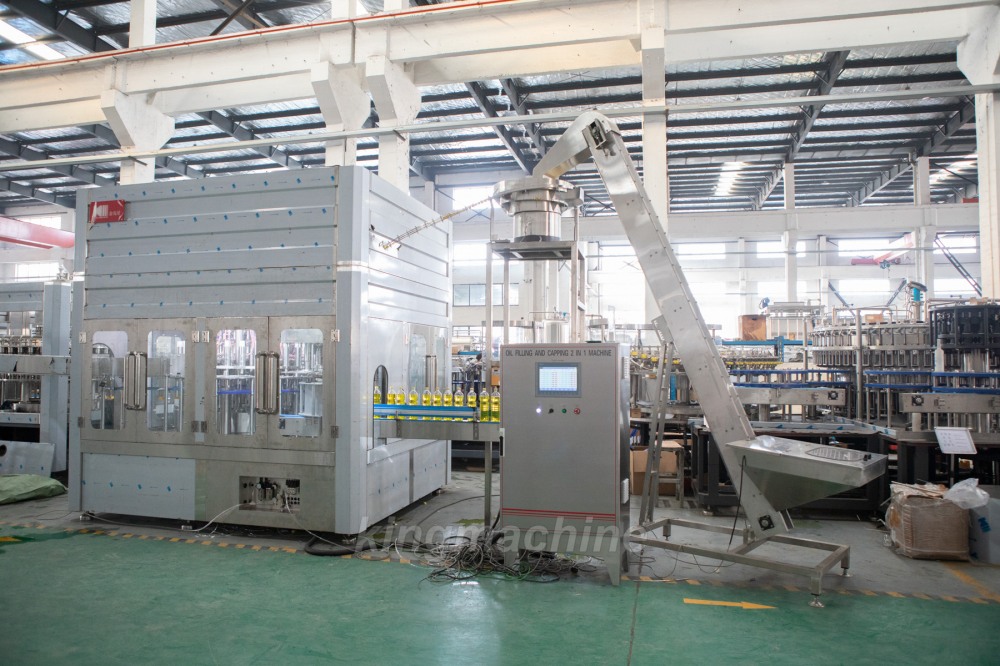
Conclusion
Weighing filling machines offer a compelling combination of accuracy, waste reduction, versatility, efficiency, and quality control that can significantly enhance oil production lines. By investing in this technology, manufacturers can not only improve operational performance but also reduce costs, meet compliance requirements, and deliver consistently high-quality products to their customers.
For oil producers seeking to stay ahead in a competitive industry, upgrading to a weighing filling machine is a smart, future-proof decision that pays off in both productivity and profitability.
At King Machine, we specialize in providing advanced filling solutions tailored to the oil industry, helping manufacturers achieve the highest standards of efficiency and precision.


